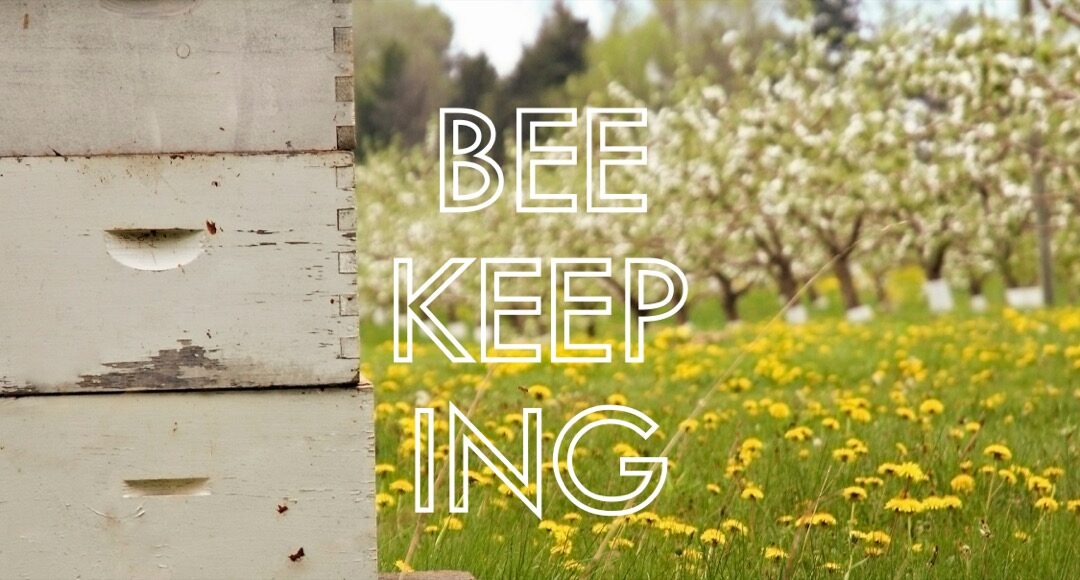 The inexorable rhythm of the seasons continues apace and at this stage in the year beekeepers are already preparing the ground for next year’s colonies.
The inexorable rhythm of the seasons continues apace and at this stage in the year beekeepers are already preparing the ground for next year’s colonies.
Like gardeners and farmers, we look to the future as we nurture our charges. A critical mass of healthy bees now, despite the prospect of our taking away much of their lovely honey, should ensure that they survive the Winter.
Last Autumn I had two big colonies,: with the advantageous weather of early Spring these flourished and showed no signs of swarming, which is always a relief. A third colony, the result of a late swarm that actually flew into an empty hive, sadly died out in March.
Frustrated in my search for the Queen in one of my hives in May, I was alarmed to discover an unusually large pile of dead bees. At a time when about 2000 bees were emerging daily, this was a sustainable attrition, but an unwelcome one nonetheless: I suspected poisoning from agricultural activities nearby. I posted a sample of dead bees to the laboratory and, at the time of writing this blog, am still waiting for the result. Strangely, this manifested itself on the one hive only, so the cause may prove to have been robbing, (an attempt to steal their honey by a foreign set of bees): a diagnosis supported by our local bee inspector.
 There has been much reported in the press about the effects of gardening and agricultural chemicals, noenicitinoids in particular, and their pernicious effect on wildlife. We are aware of the importance of insects, and bees in particular and our survival as humans is conditional on their survival. I do believe that these pesticides, in killing off insects, have a knock-on effect on the whole food chain and reduce the biodiversity that reflects God’s creation. In Sussex we are blessed by the presence of plenty of birds, but this year I have never heard the Cuckoo that lived in the fields opposite our house last year and those murmurations of Starlings that fill one with wonder have all but disappeared. There is evidence that the reduction in the insect population has a measurable effect on the number of birds.
There has been much reported in the press about the effects of gardening and agricultural chemicals, noenicitinoids in particular, and their pernicious effect on wildlife. We are aware of the importance of insects, and bees in particular and our survival as humans is conditional on their survival. I do believe that these pesticides, in killing off insects, have a knock-on effect on the whole food chain and reduce the biodiversity that reflects God’s creation. In Sussex we are blessed by the presence of plenty of birds, but this year I have never heard the Cuckoo that lived in the fields opposite our house last year and those murmurations of Starlings that fill one with wonder have all but disappeared. There is evidence that the reduction in the insect population has a measurable effect on the number of birds.
I kept bees for many years in my London allotment before Ginny and I came down to Lewes 18 months ago. The bees took a bit of time to settle down. Strangely, London bees are known to produce larger quantities of honey than their country cousins. I suspect that the bio-diversity of the city with its thousands of back gardens and its parks awash with lime trees that produce a particularly flavoursome honey is at variance with much of the country where mono-culture and herbicides prevail and cause our bees to forage over a considerably larger area. Still, give me Sussex over London any day!
 Many idiomatic phrases stem from the Bible and from Shakespeare. Sailing but of my other passions, has produced plenty too, and from beekeeping we have expressions such as bee-line (actually the direct line of flight into the hive), swarm and hive-off(the fascinating process of getting a swarm into one of your hives). Plenty of old-wives’ tales and suspicions surround the art of beekeeping and, as we were about to attend my son’s wedding in North Yorkshire earlier this year, a swarm actually flew overhead. This is a classically lucky omen and much to Ginny’s relief, I was unable to pursue this particular swarm!
Many idiomatic phrases stem from the Bible and from Shakespeare. Sailing but of my other passions, has produced plenty too, and from beekeeping we have expressions such as bee-line (actually the direct line of flight into the hive), swarm and hive-off(the fascinating process of getting a swarm into one of your hives). Plenty of old-wives’ tales and suspicions surround the art of beekeeping and, as we were about to attend my son’s wedding in North Yorkshire earlier this year, a swarm actually flew overhead. This is a classically lucky omen and much to Ginny’s relief, I was unable to pursue this particular swarm!
The riddle posed by Samson “Out of the eater came something to eat, And out of the strong came something sweet.” But they could not tell the riddle in three days.
Because they hadn’t read Judges 14!
Henry Foster
Creation Care Team

